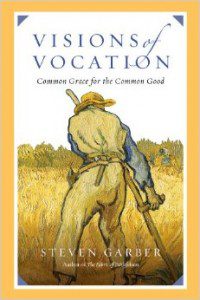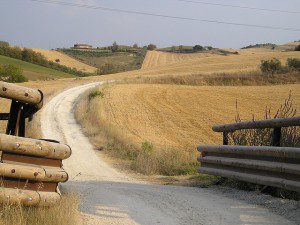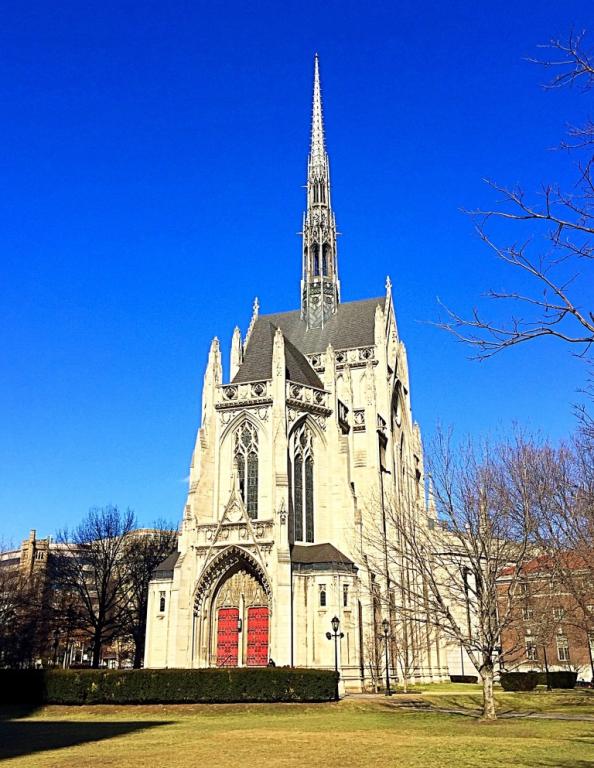 This excerpt from Steve Garber’s book Visions of Vocation is reprinted here with the kind permission of InterVarsity Press. Stay tuned as we continue to occasionally publish excerpts from the book here at Visions of Vocation the blog. And get the book from IVP at this link!
This excerpt from Steve Garber’s book Visions of Vocation is reprinted here with the kind permission of InterVarsity Press. Stay tuned as we continue to occasionally publish excerpts from the book here at Visions of Vocation the blog. And get the book from IVP at this link!
[Steve writes about some of his friends:] In the relationships and responsibilities of common life, they see themselves as implicated in the way the world is and ought to be. They see themselves as having vocations that call them into life, into the world—into a way of knowing that implicates them, for love’s sake. And in the unfolding of my life, living where I have lived, working where I have worked, I have met some of those people.
There are people I want my students to meet. Given that deep within my pedagogy is the conviction that we learn the most important things over the shoulder, through the heart, it matters that my students see men and women who live what they believe—and do so with winsome moral seriousness. I want them to see commitment lived out, but I want them to see smiles and laughter too.
Native New Yorkers, Claudius and Deirdre came to Washington to study at Georgetown University as undergraduates. He was from a serious Catholic family in Syracuse, one of several brothers, all very Italian; Deirdre was from Staten Island, born of a German mother and an Irish father, and if there was a faith that formed the family, it was probably the editorial vision of the New York Times.
Their families had grown them to be eager for the world, wanting to understand their place in it—not a small gift at age eighteen. In those years at Georgetown, Claudius became a purposeful student, interested in all he learned. And given his history and the identity of Georgetown, it is no surprise that along the way he considered becoming a Jesuit; but through those years he began to love Deirdre too—and in the end she won his heart, and his vocation.
 Their undergraduate experience was rich in many ways, clarifying classroom interests that became callings, but also deepening honest faith for them, understanding more clearly what they believed and why. The following years brought more schooling for them both—he went to law school and she earned a PhD in clinical psychology—and they settled into the city of Washington.
Their undergraduate experience was rich in many ways, clarifying classroom interests that became callings, but also deepening honest faith for them, understanding more clearly what they believed and why. The following years brought more schooling for them both—he went to law school and she earned a PhD in clinical psychology—and they settled into the city of Washington.
Watching them over the years, it is clear that they live for others. They are openhearted about their lives, and their home has always been a place for people. Folk who walk in the door feel welcomed and wanted, and when it is time to eat, their wonderfully built table has room for all. Not surprisingly, Claudius loves to offer good wine, and Deirdre has a gift for creating sumptuous suppers; together they make good conversations about important things the habit of their home. A daughter, Elena, and a son, Liam, are now part of the story, coming into their own maturity, asking their own questions, and making their own commitments about who they are and how they will live. Different as they should be, it is also clear that they are their parents’ children, learning to live as they live together as a family.
Their life for others extends beyond their home though. Since he finished law school, Claudius has always chosen public law, serving in a variety of settings over the years that are always one more version of doing public justice. After the Enron scandal that rocked the nation, with the complicity of major accounting firms fudging the numbers and creating a chasm of confidence in investment, Claudius was asked to give leadership to an effort that would bring more order to public accounting, and so for years now he has used his legal skill to oversee the financial records of major corporations.As the Hungarian scientist and philosopher Michael Polanyi argued, “two plus two is a moral equation.”
If we fail to count rightly, we not only fail math, but we lie about reality—and we lose public trust, the heart of a good society. Deirdre spends her days with the complex calling of woman and mother, attending to home but also to her practice as a psychologist. Early on it was clear that she had unusual wisdom about the human heart. By instinct resisting dualisms of different sorts, she brings a more coherent vision of human being in all its glory and shame, and it is instinct that is important to ponder here. Some of it is her family, some is her personality, some is her gift, some is her education, some is her community, but taken together she has eyes to see who people are and why they are. And over time she has become a trusted counselor, taking people seriously as she listens carefully.
People who keep at their callings for a lifetime are always people who suffer. The world is too hard and life is too broken for it to be otherwise. And that is true for Deirdre and Claudius. In their life together they have lived with heartaches in their extended family, and horrible sickness in their own family. They have known surgery after surgery, each one done in great hope and fear. It is true that at best we see through a glass darkly; the future is unknown for them, as it is for all of us. But they live with gladness and singleness of heart, which at the end of the day is the best that any of us can do.
Their life for others is a window into the meaning of common grace for the common good. From the hospitality of their table to the way they live in their neighborhood to the work that is theirs in the worlds of law and psychology, they have chosen vocations that give coherence, making sense of what they believe about God and the human condition, and have unfolded habits of heart that are a grace to the watching world.
Image: Roberto La Forgia, “The Way.”
Taken from Visions of Vocation by Steven Garber. Copyright (c) 2014 by Steven Garber. Used by permission of InterVarsity Press, P.O. Box 1400, Downers Grove, IL 60515-1426. www.ivpress.com











